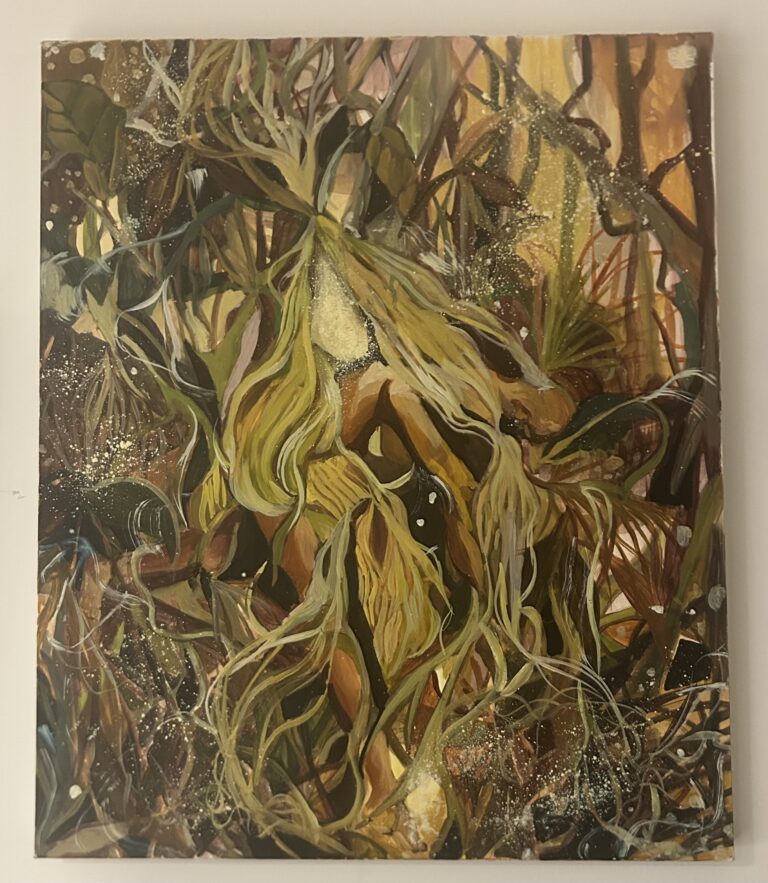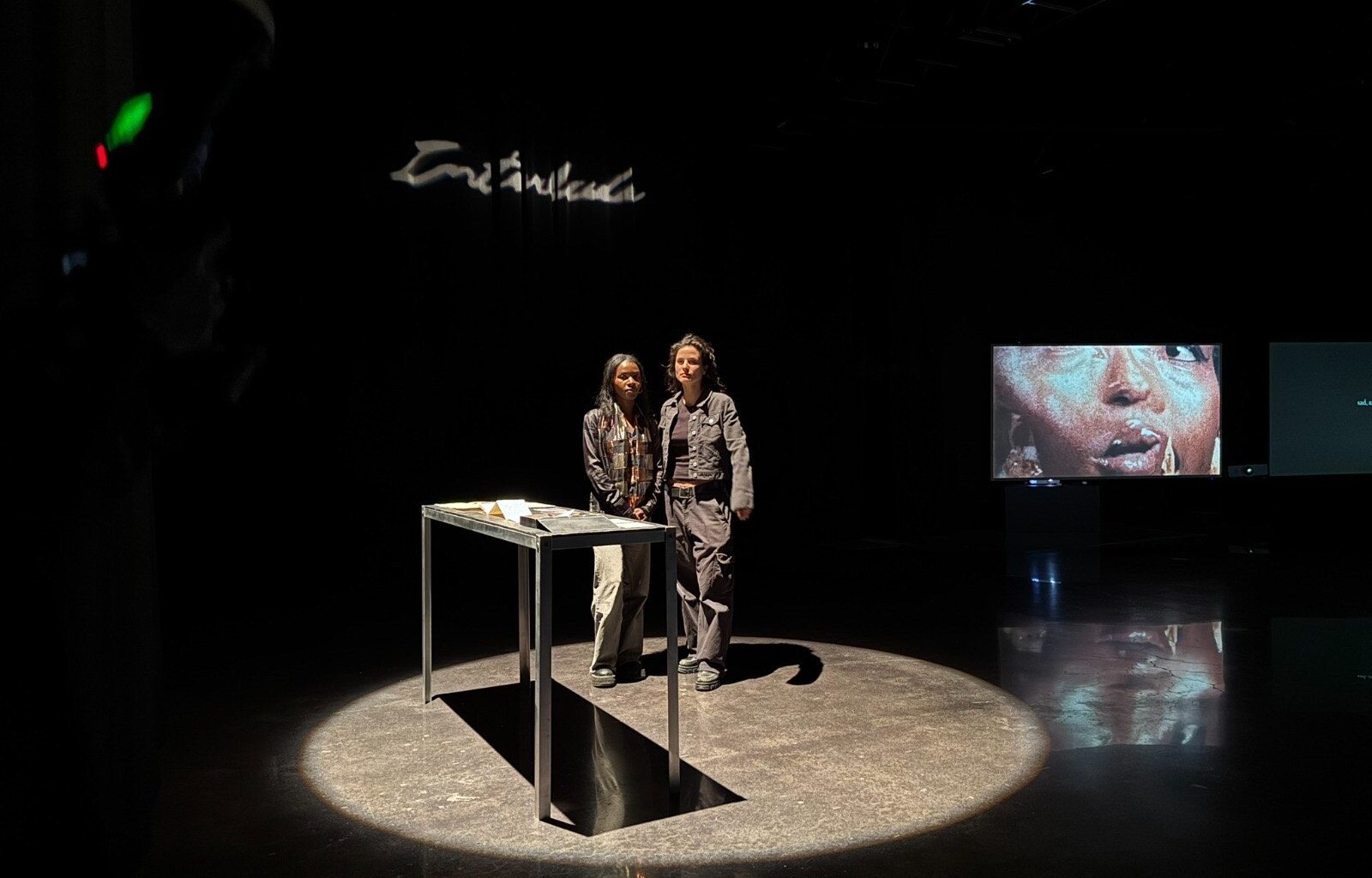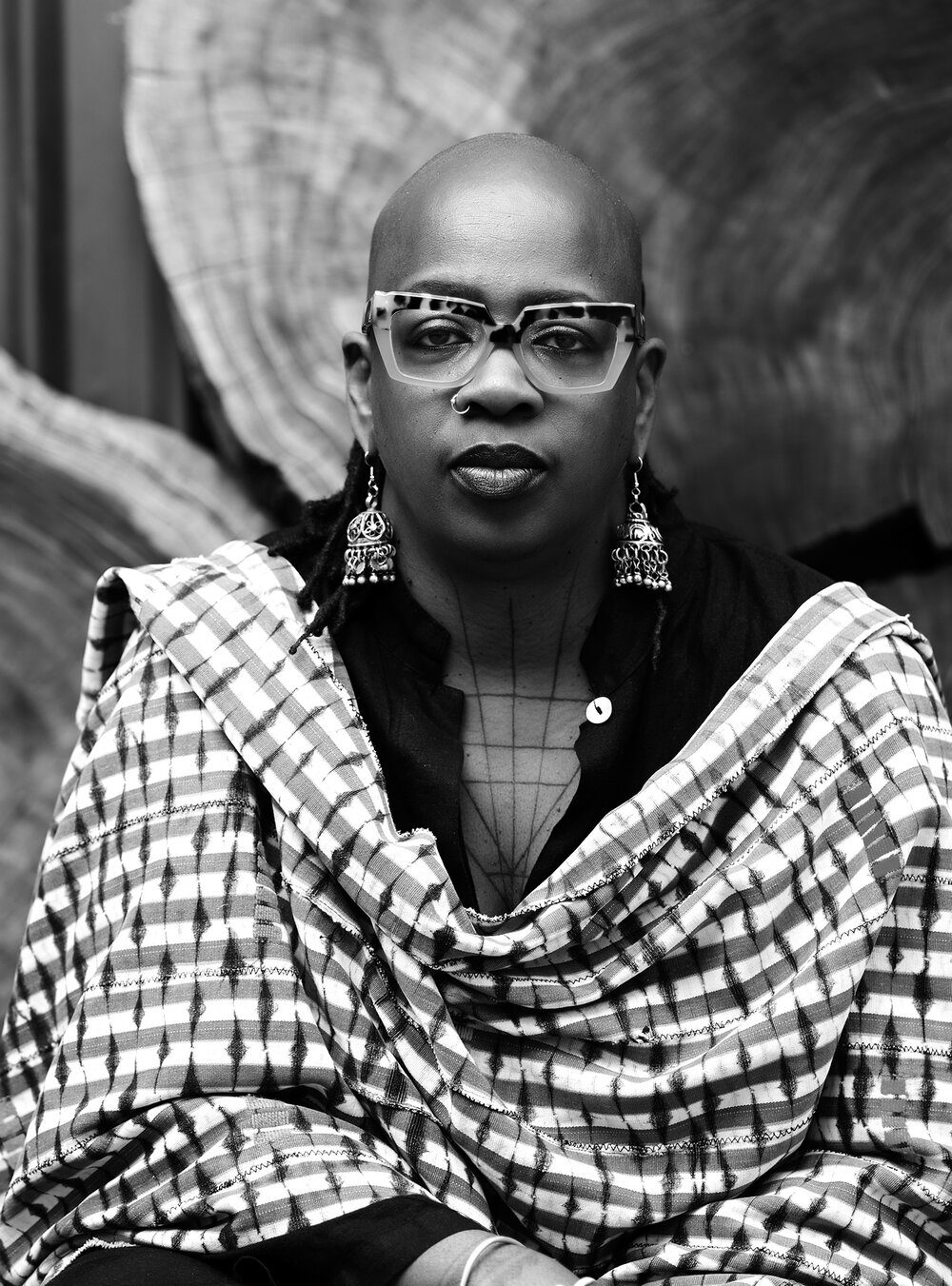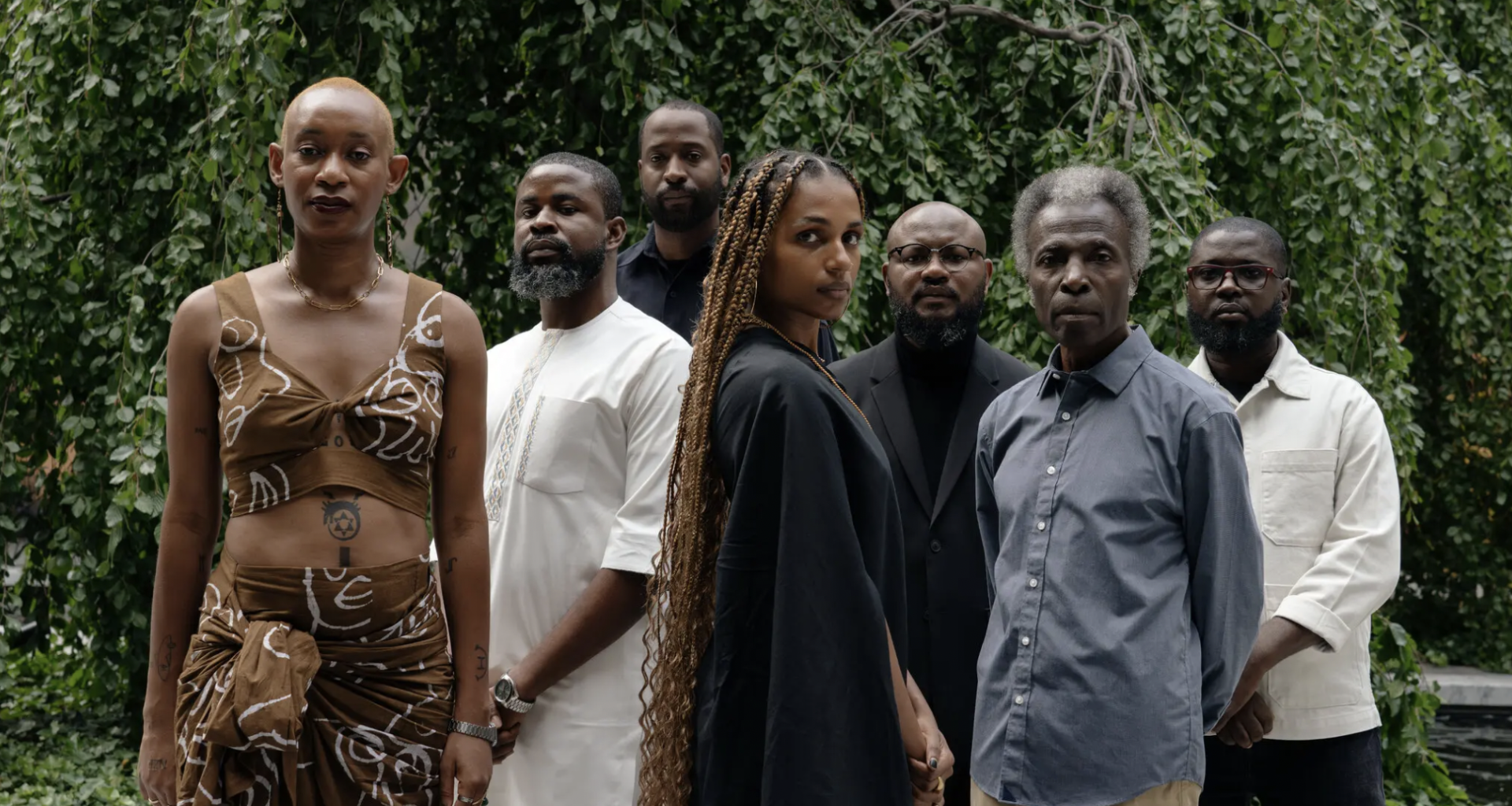By Dnllnd – Own work, CC BY-SA 4.0
Pace Gallery announces it now represents Grada Kilomba. Howard University appoints Stacey Abrams as the inaugural Chair for Race and Black Politics. PBS schedules Birthing Justice to air in April during Black Maternal Health Week. Isaac Julien’s first-ever survey exhibition in London is slated to open in late April. Read more in This Week in Black Art and Culture.
Pace Gallery Represents Grada Kilomba
Pace announced its representation of the Berlin-based Portuguese artist Grada Kilomba in the United States. Kilomba, whose work centers on decolonial storytelling, has nurtured a practice spanning video, performance, staged readings, photography and sculptural and sound installations. The artist’s first presentation with Pace—opening at the gallery’s New York flagship on May 12—will mark the U.S. debut of her installation, 18 Verses (2022). Pace will represent Kilomba in collaboration with Goodman Gallery.
Kilomba’s work draws on memory, trauma, gender, postcolonialism, and notions of selfhood to interrogate concepts of knowledge, power and cyclical violence. The artist’s approach to these subjects is informed by her training in psychoanalysis, Frantz Fanon studies, and her past work with war survivors. In her unique practice of storytelling, Kilomba gives body, voice, movement and form to her own texts, creating subversive and poetic imagery to interrupt the collective imaginary. Her process is guided by a series of questions: “What stories are told? Where are they told? How are they told? And told by whom?”
Her scholarly pursuits and achievements are reflected in her visual arts practice, through which she meditates on timeless acts of history, repetition and ritual. The artist holds a Doctorate in Philosophy from the Freie Universität Berlin and has lectured at several international universities. She is the author of the acclaimed book, Plantation Memories: Episodes of Everyday Racism, which has been translated into several languages and adapted by the artist into a staged reading and video installation.
Investigating politics and histories of dehumanization, Kilomba’s art collapses the spatial and temporal boundaries that separate the past, present and future. The artist’s debut exhibition with Pace will spotlight her sculptural installation 18 Verses, which follows her acclaimed large-scale installation and performance O Barco | The Boat (2021), a 32-meter-long sculptural slave ship memorializing the Middle Passage.
In 18 Verses, Kilomba continues using the boat as a metaphor to explore systems of power. This sculptural installation reveals the silhouette of a shipwreck, alluding to migrant routes across the Mediterranean and global waters today while also echoing images, gestures and sounds that insinuate a sense of historical repetition. 18 Verses is composed of burnt wooden pieces, each engraved with a poem written by the artist. This work, which figures in Kilomba’s solo exhibition, One soul, one memory at Goodman Gallery in London through April 6, will be installed on the seventh floor of Pace’s New York gallery from May 12-July 1.
Kilomba is a co-curator of the 2023 Bienal de São Paulo, and she will debut a new commission at the Kunsthalle Baden-Baden in Germany in 2025. Her work can be found in the collections of Tate Modern in London; the Calouste Gulbenkian Museum in Lisbon; the Royal Dutch Collection in the Netherlands; and the Hessel Museum of Art at Bard College in New York. Marc Glimcher, president and CEO of Pace Gallery, said, “We’re thrilled to welcome Grada Kilomba to Pace. Through her work in visual, written, and sonic mediums, Grada tells powerful stories about the cyclical nature of history. Bringing her scholarly work in psychology and postcolonial studies into the visual realm, Grada has cultivated a deeply poetic mode of artmaking.
“Grada’s lyrical work in installation and performance makes her a great fit for our program, which has had a strong emphasis on experimental performance since its beginnings. We look forward to working with Goodman Gallery as we share Grada’s art with our American audience.”
Howard U Appoints Stacey Abrams As Inaugural Chair for Race and Black Politics

Howard University has announced the appointment of Stacey Abrams, Esq., as the inaugural Ronald W. Walters Endowed Chair for Race and Black Politics. Abrams will foster interdisciplinary collaborations across the university on critical issues of race and Black politics, especially those that affect African-diaspora Americans. She also will inspire research and encourage broad discussions of scholarship for real-world solutions to complex, seemingly insoluble societal problems that adversely affect African diasporic communities and other vulnerable populations.
Finally, she will lead the vibrant Ronald W. Walters Speakers Series with invited guests on a range of topics representing diverse perspectives. Abrams’ selection honors the work and legacy of renowned political strategist and scholar Dr. Ronald Walters, where she will engage Howard University’s students in a conversation about where they can influence, shape and direct critical public policy decisions.
Stacey Abrams is a Spelman College alumna who graduated magna cum laude with a Bachelor of Arts in interdisciplinary studies and was named a Harry S. Truman Scholar in 1994. She then received a master’s degree from the Lyndon B. Johnson School of Public Affairs at the University of Texas at Austin and earned a J.D. from Yale University. After practicing tax law for a major firm, she was appointed as the deputy city attorney of Atlanta and co-founded several businesses. She began her political career in the Georgia General Assembly in 2007 and was the minority leader of the Georgia House of Representatives from 2011 to 2017.
In 2018, she became the first African American woman to win a major party nomination for governor in the United States as the Democratic nominee in Georgia. Abrams has launched multiple nonprofit organizations and is the bestselling author of 15 books, including Our Time is Now: Power, Purpose, and the Fight for a Fair America and Lead from the Outside: How to Build Your Future and Make Real Change. She also has penned political thrillers such as Rogue Justice and While Justice Sleeps, as well as an entrepreneurial guidebook, Level Up and two children’s books.
“Stacey Abrams is a respected voice in American politics, known for her advocacy for voting rights, criminal justice reform, environmental justice, and economic empowerment for marginalized communities,” said Howard University Provost and Chief Academic Officer Anthony K. Wutoh, Ph.D. She continues to be an influential figure in the Democratic Party and a role model for young women and People of Color who aspire to enter the policy arena. We are incredibly grateful to Ms. Abrams for her commitment to investing in the future of Howard students as the Ronald W. Walters Endowed Chair, and we are pleased to welcome her to Howard University.”
Howard University created the Ronald W. Walters Endowed Chair to continue Walters’ legacy of expanding the university’s capacity as a leader in emerging scholarship in Black politics. Patricia Turner Walters, Walters’ wife, gifted Howard University with the couple’s African American art collection valued at more than $2.5 million. The Ronald W. and Patricia Turner Walters Collection is on display at the Howard University Gallery of Art through July 13.
PBS’ Birthing Justice Premiere During Black Maternal Health Week
New federal data reveals the unfortunate truth for Black mothers across the country—as the national maternal mortality rate rose during the pandemic, Black mothers were three to four times more likely to die from pregnancy-related causes than their white counterparts. Viewers can learn more about these disparities—and experience moments of resilience and joy—by tuning in to select PBS stations during Black Maternal Health Week (April 10-17) to watch Birthing Justice.
The powerful documentary goes behind the statistics and beyond grief to amplify the way Black women are taking control of their lives and transforming birth experiences for generations to come. “Birthing Justice is the film I wish I had before I started a family,” said Allyson Felix, 11-time Olympic medalist, co-founder and president of Saysh and executive producer of Birthing Justice. “It takes an in-depth look at the horrifying statistics of giving birth for Black women and unpacks the complexities of changing these outcomes. It was important for me to share my story alongside other powerful accounts so that my daughter and her generation won’t face these same issues.”
See the list of air dates here, in addition to information on how individuals and communities can host their own Birthing Justice watch party. After watching the documentary, viewers can use this thought-provoking discussion guide provided by The Opportunity Agenda, a social-justice oriented, nonprofit communications community, to empower conversations about Black maternal health with friends, family and community members.
Birthing Justice is produced by Women in the Room Productions, a comprehensive media company that drives social impact for women and People of Color through storytelling and community. The W. K. Kellogg Foundation, Missouri Foundation for Health, Meadow Fund, Robert Wood Johnson Foundation and others provided support for the film.
Tate Britain and Isaac Julien Survey Exhibition Coming Soon
Tate Britain will present the U.K.’s first-ever survey exhibition celebrating the influential work of British artist and filmmaker Sir Isaac Julien from April 26-Aug. 20. This solo show will chart the development of his pioneering work in film and video over four decades from the 1980s to the present day, revealing a career that remains as fiercely experimental and politically charged as it was 40 years ago.
The exhibition will present key works from Julien’s groundbreaking early films and immersive three-screen videos made for the gallery setting to the kaleidoscopic, sculptural, multi-screen installations for which he is renowned today. The show will open with Julien’s earliest experiments in the moving image, produced in the context of the Sankofa Film and Video Collective. Four works from this period will be brought together at Tate Britain, including Julien’s first film, Who Killed Colin Roach? (1983), Territories (1984), and This is Not An AIDS Advertisement (1987).
Looking for Langston (1989) also will be featured, bringing together poetry and image to look at the private world of the Black artists and writers who were part of the Harlem Renaissance in the 1920s. Julien’s use of dance to articulate the movement of peoples across different continents, times and spaces is reflected in his three-screen film installations, Western Union: Small Boats (2007), Lina Bo Bardi – A Marvelous Entanglement (2019) and Once Again… (Statues Never Die) (2022).
Western Union, choreographed by Russell Maliphant, reflects on African migration histories and the effects of trauma on people, buildings and monuments. Lina Bardi, a performance from Balé Folclórico da Bahia filmed at the Museum of Modern Art of Bahia in Brazil, meditates on the legacy of visionary modernist architect and designer Lina Bo Bardi (1914–1992). The exhibition will premiere the artist’s most recent film, Once Again… (Statues Never Die) (2020), which explores the relationship between U.S. collector Albert C. Barnes and the famed philosopher and cultural critic Alain Locke, known as the “Father of the Harlem Renaissance.”
Julien’s critically acclaimed 10-screen film installation, Lessons of the Hour (2019) also will showcase his 40-year long commitment to cultural activism, the politics and poetics of image, and the moral and social influence of picture-making.











